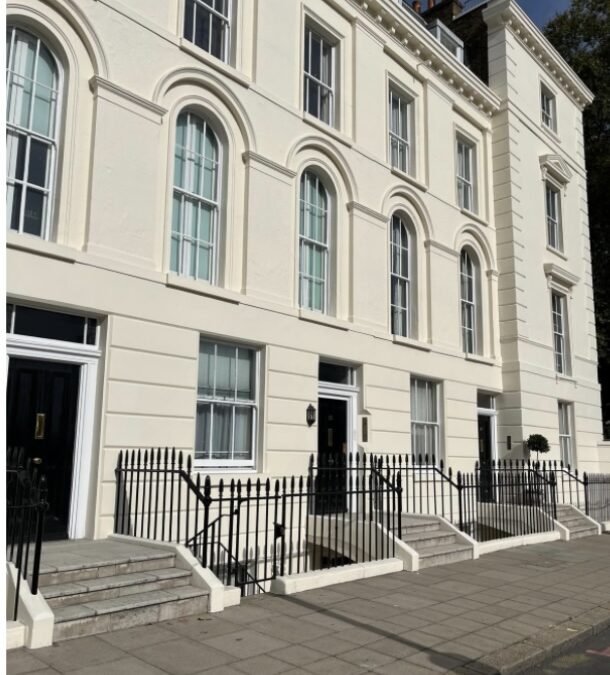Author: Beatrice Pellegrino
Committee: Real Estate Committee
Date: 20/05/2024
The real estate market has always been a field of interest for law enforcement agencies. In recent years, due to different situations particularly Covid-19, an important issue was brought to attention: the role of real estate in facilitating money laundering activities. Money laundering implies purchasing real estate or luxury items with the intention of reselling them, which complicates the tracing of illicit funds. Both domestic and international economic factors, in connection with the inherent appeal of real estate as an investment, has made it an increasingly fertile ground for illicit financial activities. Infact Europol, the European Union’s agency for law enforcement collaboration, discovered that 41% of criminal organizations employ real estate to launder their illegal earnings1. In response to these challenges, the European Public Prosecutor’s Office (EPPO) was design as the monitoring body for legal accountability and control. Founded as an independent institution within the EU framework, the EPPO is entrusted with investigating and prosecuting crimes against the financial interests of the EU. This mandate comprehends a variety of crimes, including fraud, corruption, and money laundering, as define in the PIF Directive2.
In this context, at the Jean Monnet Centre of Excellence Steppo, the Real Estate Committee has the aim to increase the knowledge and awareness of the central role that EPPO has in this matter. From a legal point of view, the relationship between real estate markets and the EPPO is shaped by EU directives and regulations with the goal of promoting transparency. Directives such as the Fourth Anti-Money Laundering Directive3 (AMLD4) and its revisions impose obligations on real estate professionals, including real estate agents, developers, and financial institutions. To ensure the integrity of transactions it is crucial to enforce meticulous due diligence protocols and promptly alert competent authorities about any transactions that raise suspicion.
At the domestic level Italy can be consider an excellence in the prevention of money laundering, in fact real estate agents, due to the Legislative Decree 231/20074 (which is the transcription of the EU Directive aforementioned), must compile with a procedure that comprehend identification, retention and risk assessment. However, the increase in foreign buyers has reshaped the landscape of real estate transactions, extending beyond major urban centres to encompass tourist destinations.
Moreover, recent developments in EU law, such as the establishment of beneficial ownership registers interconnection system (BORIS) and the introduction of upraised customer due diligence requirements, underline the EU’s commitment to combatting illicit financial activities within this sector. By increasing transparency and accountability, these legal instruments contribute to easing the risks associated with money laundering and illicit financial flows, thereby strengthening investor confidence and protecting the integrity of real estate markets.
This tendency reflects the globalization of real estate markets and the increment mobility of capital across borders. However, alongside this trend lies a concerning reality: the exploitation of economic vulnerabilities by organized crime. The proliferation of the illicit activities in the real estate sector depends on the fact that properties offer stability, potential appreciation, and avenues for generating income through rentals or resale. Moreover, real estate transactions provide a veil of respectability, making them an attractive option for laundering illicit funds. As highlighted in the EPPO Annual Report 20235 in a variety of cases to recover the damages to the European budget the police seized assets and real estate. For example, the procurement fraud at National History Museum in Olomouc, Czech Republic: three employees were under suspicion for manipulating a public contract associated with European Structural and Investment Funds. To reclaim a portion of the EU budget, authorities seized assets and real estate valued at €600,000.
In conclusion, the relationship between real estate markets and the European Public Prosecutor’s Office underlines the intersection of economic vitality, legal accountability, and regulatory oversight. As EPPO navigates the critical issues generated by the evolving global landscape, this relationship remains the main point in safeguarding the integrity of financial systems and safeguarding the trust of citizens.
Fonti:
- Europol report on recoding the EU’s most threatening criminal networks https://www.europol.europa.eu/cms/sites/default/files/documents/Europol%20report%20on%20Decoding%20the%20EU-s%20most%20threatening%20criminal%20networks.pdf
- Directive (UE) 2017/1371 of European Parliament and the Council. https://eur-lex.europa.eu/legal-content/IT/TXT/?uri=CELEX:32017L1371
- Directive (EU) 2015/849 of the European Parliament and of the Council. https://eur-lex.europa.eu/legal-content/IT/TXT/?uri=CELEX:32017L1371
- Implementing Regulation No. 369/2021 on March 1, 2021. https://eur-lex.europa.eu/legal-content/EN/TXT/?uri=CELEX%3A32021R0369
- EPPO Annual Report 2023, p. 58, 60. https://www.eppo.europa.eu/sites/default/files/2024-03/EPPO_Annual_Report_2023.pdf

